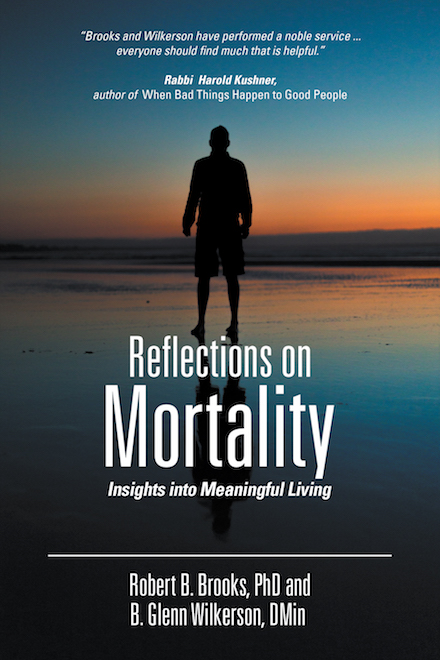Reflections on Mortality
Insights into Meaningful Living
By: Robert B. Brooks, PhD & B. Glenn Wilkerson, DMin
BUY ON AMAZON BUY AT BARNES & NOBLE
About Reflections on Mortality
Many of us fill our lives with so much work, entertainment, and fluff that we fail to consider the reality that our personal journeys on earth must someday come to an end.
This collection of essays and articles points out that human existence is a fragile, terminal gift. Accepting that encourages us to live dynamic, purposeful lives.
Combining insights from thought leaders in the fields of medicine, mental health, and religion, as well as hospice directors, funeral directors, and those who have faced life-threatening situations, the writers and editors of this book share their honest, open views about death, dying, and the possibilities of an afterlife.
The Authors
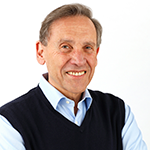 Robert B. Brooks, PhD, is the former director of the Department of Psychology at McLean Hospital and is on the faculty of Harvard Medical School (part-time). He has lectured nationally and internationally and written extensively abut different psychological themes, especially resilience across the lifespan.
Robert B. Brooks, PhD, is the former director of the Department of Psychology at McLean Hospital and is on the faculty of Harvard Medical School (part-time). He has lectured nationally and internationally and written extensively abut different psychological themes, especially resilience across the lifespan.
Learn more about Dr. Brooks by visiting his website.
B. Glen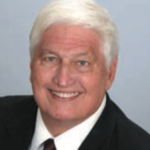 n Wilkerson, DMin, is recognized as one of the world’s foremost authorities in elevating social/emotional health and creating positive self-concepts in children. He is the author of the nationally acclaimed ARK (Adults Relating to Kids) Program, incorporating best practices in parenting and teaching.
n Wilkerson, DMin, is recognized as one of the world’s foremost authorities in elevating social/emotional health and creating positive self-concepts in children. He is the author of the nationally acclaimed ARK (Adults Relating to Kids) Program, incorporating best practices in parenting and teaching.
Editorial Reviews
The following review was written by Thomas Brennan for Clarion Reviews:
Reflections on Mortality is a noteworthy addition to the literature about death and dying.
Some books, as Francis Bacon remarked, should be chewed and digested. Reflections on Mortality, a series of nineteen essays edited by Robert B. Brooks and B. Glenn Wilkerson, is one of them. This collection addresses the commonality of death and how its certainty can provide insights into meaningful living.
The book is organized around three themes. Part I focuses on several professional groups that are involved in the modern health-care industry: psychologists, who examine our relationship with death; neurosurgeons, who attempt to prevent it; hospice workers, who strive for dignified dying; and funeral directors, who deal with the inevitable.
The six essays in Part I are filled with insightful and striking stories, and they convey the difficulty each profession encounters in dealing with death. A hospice worker tells his account of unburdening himself from each day’s tragedies by placing his hand on a tree, freeing himself of the bad news to avoid poisoning his personal life. He states that “he knew it worked because the tree died eight months later.”
The essays in Part II reveal personal stories of people who have encountered death from different perspectives: a three-time cancer survivor, a military helicopter pilot who lived to tell tales of war, and a bereaved mother whose daughter committed suicide. Each story, while uniquely painful, is a testament to the resiliency of the human spirit and the discovery of meaning and purpose in one’s life when confronted with death.
People step up to the edge of an abyss and peer in. The doubt, anxiety, and futility expressed by the parent of a suicide is captivating in its honesty: “And the miracle we’d never once doubted would eventually come never came.”
Part III thoroughly examines many religious perspectives on the meaning of death. These essays are more traditional in their approach. If religion provides an insight into death and comforts those who mourn it, it says, that can be valuable. Christian, Buddhist, and atheist perspectives are shared.
All of the essays are about experiences with death, but their narratives and tones differ. When a person dies, an analytical neurosurgeon concludes, “Death means I failed.” Hospice workers are more practical.
Many of the essays include ideas from noted authors who have previously examined death and suffering, including Harold Kushner, Viktor Frankl, and Elisabeth Kübler-Ross. Extensive footnotes provide a valuable map for further reflection.
This is a work full of insights, such as that the knowledge of death changes a person’s relationship with time: everyone knows our time is finite, but death makes it intimately finite. Many essays look to poets for understanding, and topics are often explored through personal poetry.
Reflections on Mortality is a noteworthy addition to the literature about death and dying.
The following review was written by BlueInk Review:
This thoughtful, creatively-edited collection of essays on mortality succeeds in giving insight, solace (and a dose of gallows humor) to those contemplating their own demise—in other words, anyone with a heartbeat.
The editors, McLean Hospital/Harvard psychologist Robert B. Brooks and prominent social/emotional health authority B. Glenn Wilkerson, never come on like a pair of grim reapers. Instead, the broad spectrum of views of the 17 writers they’ve assembled here— including a Buddhist, a Muslim, a grieving mother, a funeral director, a neurosurgeon, etc. (the editors also contribute one piece each)— share one buoyant conviction: “an open acceptance of the reality of death somehow releases the living to live more joyfully in the present.” In these pages, Eastern bliss clearly outranks the common Western fear of a dark end.
Among the views noted here, Rabbi Rifat Sonsino writes: “Most likely, the energy I represent will return to the source of energy of the universe and become one with it. . . in the meantime, make up for the brevity of life by heightening its intensity (and living) richly, creatively and nobly.” Similarly, Vermont funeral director Jefff Staab exhorts readers to: “Fill your world with all the love you can take.”
Traveling in India, editor Wilkerson goes to Varanasi, on the banks of the Ganges, where tragically poor people bring their dead relatives for public cremation. In empathetic and eloquent prose, he describes their joy and (a keynote of this collection) their acceptance of death as “an ongoing aspect of the human journey.”
As indicated above, the essays often urge readers to live life to the fullest. This may seem a cliché, but the writers here manage to imbue the thought with fresh impact. They offer personal anecdotes often sparked by losses in their own lives and present their ideas in meaningful, concrete, accessible ways.
This is an intelligent and diverse volume of well-written and thought-provoking essays. It belongs on any thinking reader’s shelf.
Endorsements
“Confronting our mortality is hard but necessary if we are to take our lives seriously. Brooks and Wilkerson have performed a noble service by compiling this book in which people of very different backgrounds offer their perspectives, so that everyone should find much that is helpful in it.” ~ Rabbi Harold Kushner, author of When Bad Things Happen to Good People
“This book is a set of essays on the fact of our mortality and the issues that death raises for every person. Written by various professionals in the fields of medicine, healthcare and religion, the reflections offer highly contrasting yet interesting views on the meaning of the human person and the role of our mind and heart, of our intellect and emotion, in meeting our finitude. It allows us to glimpse real joy and meaning in life by consciously facing death. As a religious believer, I found the book helpful in setting out so many issues surrounding our death and dying.” ~ His Eminence, Cardinal Daniel DiNardo, President of the U.S. Conference of Catholic Bishops
“You know a book represents a true publishing event when you find yourself marveling at its scope as well as absorbing its personal power, poignancy, practicality, and depth. This is what I experienced in being moved and taught by the chapters in Reflections in Mortality: Insights into Meaningful Living. As I moved through each subsequent chapter written by a pilot, psychologist, social worker, minister, hospice worker, funeral director or other person intimately connected with a sense of mortality and its impact on how we might live our lives more fully, I found myself asking, Why wasn’t a book of this scope and impact available until now? Well, now Reflections in Mortality fills that gap and then some. It is a true gift to all of us—including professionals who seek not simply knowledge but true wisdom on the topic.”~ Robert J. Wicks, Psy.D., author of Perspective: The Calm within the Storm; Bounce: Living the Resilient Life
Contents
Preface
Robert B. Brooks, PhD
PART I: Perspectives of Health Care Professionals
To Face One’s Own Mortality: What We Can Learn from Connecting the Dots Backward
A Psychologist’s Perspective on Mortality
Robert B. Brooks, PhD
“We’re Not Treating the Measles Here”
A Neurosurgeon’s Perspective n Mortality
Duke S. Samson, MD
On Dealing with Mortality
A Hospice Director’s Perspective on Mortality
Jeanette Coffield, BBA
A Lasting Legacy: An Approach to End-of-Life Care
A Second Hospice Director’s Perspective on Mortality
John D. Foster, MS, CPM
Even Funeral Directors Die
A Funeral Director’s Perspective on Mortality
Jeff Staab, CLCC
Finding Balance While Helping Others Cope with Grief and Loss
A Director of Pediatric Oncology Social
Work’s Perspective on Mortality
Frances L. Greeson, MSSW, LCSW
PART II: Personal Perspectives
The Biology Exhibit
A Dying College Professor’s Perspective on Mortality
Billy Moore, BA
Brushes with Death
A Three-Time Cancer Survivor’s Perspective on Mortality
Todd A. Herzog, BA, BComm, CPA
Remembering Friends and Serving Our Country
An Army Helicopter Pilot’s Perspective on Mortality
Wesley Hunt, MBA, MPA, MILR
No Good-Byes: Losing a Daughter and Learning How to Live Again
A Bereaved Mother’s Perspective on Mortality
Terri DeMontrond, LLC
PART III: Faith (and Nonfaith) Perspectives
Humble Reflections on Grief
An Agnostic Christian’s Perspective on Mortality
James W. Stovall, DMin
Anxiety and Death
A Buddhist’s Perspective on Mortality
Paul Foxman, PhD
The Graves’s a Fine and Private Place
A Philosopher’s Perspective on Mortality
David V. Mason, DMin
Life, Death, and the Life After
A Muslim’s Perspective on Mortality
M. Javed Aslam MD, FRCP(C)
Finding Comfort in My Loss of Faith
A Humanist/Atheist’s Perspective on Mortality
Bracha Y. Etengoff, JD
Freed from the Fear of Death
A Hindu Perspective on Mortality
Ramesh Patel, MD
From Death into Life
A Catholic Perspective on Mortality
Leon F. Strieder, SLD
The Immortality of Name and Work
A Jew’s Perspective on Mortality
Rabbi Rifat Sonsino, PhD
Death Teaches Us How to Live
A Christian’s Perspective on Mortality
B. Glenn Wilkerson, DMin
Summary
B. Glenn Wilkerson, DMin
Photos
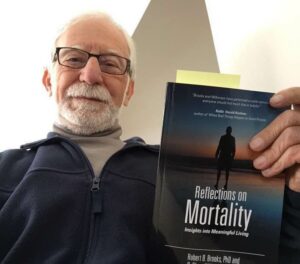
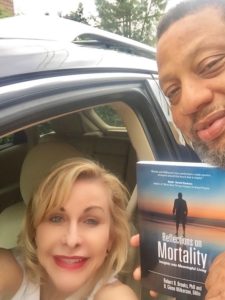
Pictured Above: Rabbi Rifat Sonsino (L) and Dana and James (R)
